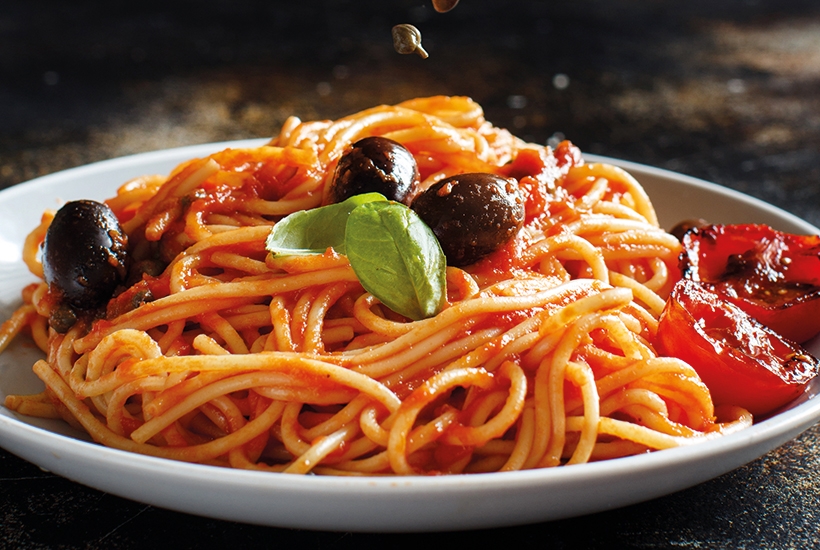The lockdown could have been the moment I was waiting for: a chance to make those long, slow recipes whose immense time commitment has previously wrong-footed me. Briskets. Cassoulet. Anything that involves soaking a dried bean. Alas, all that must be saved for the next pandemic. This one has so far been devoted to pasta puttanesca.
For the uninitiated, it’s simple. Heat oil. Add chili flakes. Add a tin of tomatoes. Add half a tin, or a tin, of anchovies to taste. Add olives and capers. Stir into pasta.
Consider that recipe. It hits, with masterly economy, all five ‘taste groups’. Sweet tomatoes. Salty capers. Sour olives. Hot chili. The umami of the anchovies. And whatever taste group pasta belongs to. It is the complete package.
It is not just a journey for the mouth, but for the mind. First, Naples: the anchovies and Italian tomatoes put you in this salty, sunny port. Specifically, Naples away from the piazza, off the tourist trail, into the seamiest quarters.
The name of the dish means ‘whore’s pasta’, and there’s an origin story here, in fetid alleys where, bleary-eyed, the ladies wolf it down under the dim light of an unshaded bulb, the madame hurrying them along as sailors pay and go.
Or maybe the tarts were not creators, but inspiration. There is something rather sexy about the tomatoes hitting the hot oil, their can-fresh red turning a sluttier hue as they yield to the heat and the anchovies. The speed of making the dish and the immediate, total satisfaction in eating it. The number of tins involved.
This meal is unusual for being made entirely from ingredients tinned and dried. (I am omitting garlic to make my case. I think garlic is unnecessary in this dish. It is the one ingredient that does not punch above its weight.) It could be served to the polyglot crew of a cargo ship, their lonely journey across the ocean studded with steaming bowls of the stuff, or in a nuclear winter or in lockdown.
Finally, puttanesca welcomes all comers. It amazing how far a tin of each ingredient will stretch. For one diner, it is a thick slavering sauce. But the same quantity will happily extend to serve most plausible numbers for lunch. It is nearly impossible to get wrong. A sauce cooked to dryness can be restored with water or wine (either color). Fancifying the ingredients (San Marzano tomatoes, posh capers etc) does not seem to help much. It works, no matter your budget. It is forgiving of eccentricities: parmesan can be added or withheld equally happily. The same is true of black pepper.
This dish is an old friend, but it has stepped up in the crisis. It is a dish for our times.
This article was originally published in
The Spectator’s UK magazine. Subscribe to the US edition here.


















